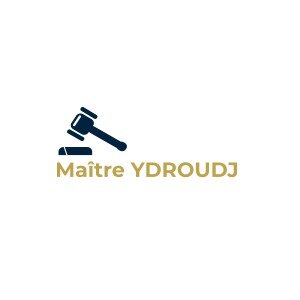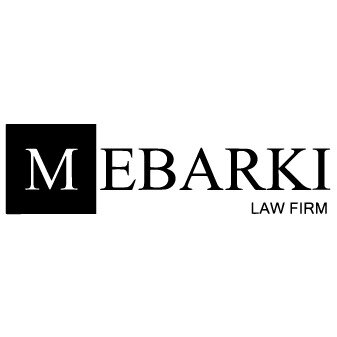Best Private Equity Lawyers in Algeria
Share your needs with us, get contacted by law firms.
Free. Takes 2 min.
Or refine your search by selecting a city:
List of the best lawyers in Algeria
About Private Equity Law in Algeria
Private Equity (PE) in Algeria refers to the investment of capital into private companies or projects that are not listed on the public stock exchange. These investments are typically made by private equity firms, venture capitalists, or professional investors seeking to provide growth capital, help restructure companies, or fund buyouts. The legal environment for private equity is shaped by local laws, financial regulations, and international standards. As Algeria continues to evolve its financial sector, there is a growing interest in private equity as a means for businesses to access funds, support innovation, and facilitate economic growth.
Why You May Need a Lawyer
Private equity transactions involve complex legal and financial processes. Individuals and businesses may require legal advice in situations such as:
- Negotiating and drafting investment agreements
- Conducting legal due diligence on target companies
- Ensuring compliance with Algerian foreign investment restrictions
- Structuring deals to optimize tax and regulatory outcomes
- Resolving disputes between investors and local partners
- Navigating mergers, acquisitions, and exit strategies
- Managing intellectual property or labor law implications in investments
- Securing regulatory approvals for cross-border transactions
- Assessing risks associated with corporate governance
- Adhering to anti-money laundering and anti-corruption laws
Because the stakes in private equity transactions can be high, having the right legal guidance is crucial to avoid costly mistakes.
Local Laws Overview
Algerian laws governing private equity are rooted in the Commercial Code, Investment Law, foreign exchange regulations, and specific decrees related to foreign investment and financial institutions. Here are a few key points:
- The National Investment Development Agency (ANDI) oversees foreign and domestic investments, subjecting some deals to registration and approval processes.
- Foreign investors are required to comply with specific ownership limitations and reporting requirements. The 51/49 Rule, which previously restricted foreign ownership in Algerian companies to 49 percent, has been relaxed for non-strategic sectors but still applies in certain industries.
- Capital gains taxes and other fiscal obligations apply to private equity transactions.
- Certain transactions, especially cross-border ones, may require notification or approval from the Bank of Algeria and the Ministry of Finance to ensure compliance with exchange control and anti-money laundering regulations.
- Dispute resolutions involving investments can be subject to local courts or, in specific cases, international arbitration if allowed by contract.
Understanding these laws is vital for structuring successful private equity deals and managing risks.
Frequently Asked Questions
What is private equity and how does it work in Algeria?
Private equity involves investing in private companies or projects with the aim of growing their value over time. In Algeria, this typically involves negotiating investment terms, conducting due diligence, and complying with local regulatory frameworks.
Can foreign investors participate in private equity in Algeria?
Yes, foreign investors can participate, but they must comply with local ownership rules and may face restrictions in specific sectors considered strategic by the Algerian government.
What are the main legal risks associated with private equity in Algeria?
Legal risks include regulatory compliance, changes in investment laws, tax liabilities, disputes with local partners, and enforcement of contractual rights.
Are there any limits on foreign ownership of Algerian companies?
Some sectors impose restrictions on foreign ownership. While the 51/49 Rule has been eased in many areas, it still applies in strategic industries like energy and defense.
What should I consider before investing in an Algerian business through private equity?
Conduct thorough legal and financial due diligence, understand regulatory requirements, assess sector-specific restrictions, and seek experienced legal counsel.
How is due diligence performed in Algeria?
Due diligence involves reviewing corporate records, financial statements, regulatory compliance, labor issues, and real property holdings, often with the help of local lawyers and accountants.
How are private equity exits structured in Algeria?
Exits can take the form of share sales, buybacks, or initial public offerings. Exit terms should be clearly defined in investment agreements and must comply with local laws.
Do private equity transactions require government approval?
Certain investments, particularly those involving foreign capital or strategic sectors, require approvals from ANDI or the Ministry of Finance.
What taxes are applicable to private equity investments?
Taxes include capital gains tax, value-added tax (VAT), and stamp duties. Tax rates and exemptions may vary depending on the type of investment and the sector.
Can disputes arising from private equity deals be resolved through arbitration?
Yes, arbitration is possible if it is agreed upon in the underlying contracts. Otherwise, local courts maintain jurisdiction over disputes.
Additional Resources
If you are seeking more information or guidance regarding private equity in Algeria, consider reaching out to the following organizations and resources:
- National Investment Development Agency (ANDI) - Responsible for promoting and regulating investment
- Ministry of Industry and Pharmaceutical Production - Oversees sector-specific regulations
- Bank of Algeria - Manages exchange control and monetary policies
- Algerian Chamber of Commerce and Industry (CACI) - Provides business and investment resources
- Professional law firms specializing in corporate and commercial law
- Algerian Business Angels Network - Offers support for start-ups and investors
Next Steps
If you are considering a private equity investment or face legal questions about an existing deal in Algeria, here are steps you can take:
- Identify your investment goals and target sectors
- Conduct a preliminary review of relevant regulations
- Seek a qualified lawyer with expertise in Algerian private equity and investment law
- Prepare documentation such as business plans, financial statements, and identification documents
- Engage your legal adviser to perform due diligence and draft or review investment agreements
- Work with your legal team to ensure regulatory compliance and secure necessary approvals
- Maintain communication with local authorities and business partners throughout the investment process
Legal support is vital for navigating the complexities of private equity in Algeria and protecting your interests at every stage. Always consult with a knowledgeable legal professional before making significant investment decisions.
Lawzana helps you find the best lawyers and law firms in Algeria through a curated and pre-screened list of qualified legal professionals. Our platform offers rankings and detailed profiles of attorneys and law firms, allowing you to compare based on practice areas, including Private Equity, experience, and client feedback.
Each profile includes a description of the firm's areas of practice, client reviews, team members and partners, year of establishment, spoken languages, office locations, contact information, social media presence, and any published articles or resources. Most firms on our platform speak English and are experienced in both local and international legal matters.
Get a quote from top-rated law firms in Algeria — quickly, securely, and without unnecessary hassle.
Disclaimer:
The information provided on this page is for general informational purposes only and does not constitute legal advice. While we strive to ensure the accuracy and relevance of the content, legal information may change over time, and interpretations of the law can vary. You should always consult with a qualified legal professional for advice specific to your situation.
We disclaim all liability for actions taken or not taken based on the content of this page. If you believe any information is incorrect or outdated, please contact us, and we will review and update it where appropriate.
Browse private equity law firms by city in Algeria
Refine your search by selecting a city.












